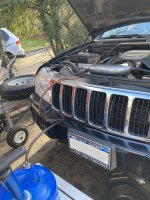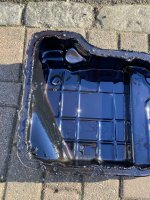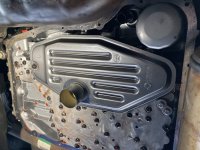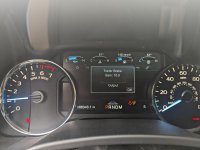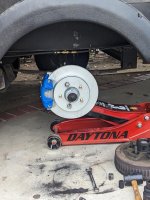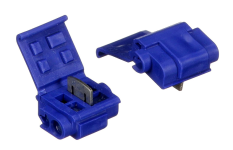Lou C
Supreme Mariner
- Joined
- Nov 10, 2002
- Messages
- 12,649
OK posted this here because I thought it might be helpful to members who have Chrysler products with this transmission (actually a good unit) who have this problem. Just happened to me last week. 120,000 miles, always shifted great, never had a problem with it all these years, no slips, jerks, noises or leaks. Then I put it into reverse to do some errands and nothing. Fluid level is fine. Popped a P0944 code, loss of pump prime. Did some reading on Mopar/Jeep sites, the possible causes are:
clogged trans filters
loose spin on filter in the pan
split main filter
bad pump
there was also a TSB covering up to the 2006 models that a bad spin on could cause this problem.
So I figured it was worth a shot to try changing the filters....I found the pan was clean not much on the magnet, filters looked good but when I went to remove the spin on, it wasn't tight, could have been the cause, but not sure....So....cleaned up pan, scraped off all the nasty RTV, wire wheeled it clean, replaced filters (you have to be careful with the seal for the main (flat) filter because it should be tapped into the trans case (use a 19mm socket on the extension flat side up) not put on the main filter tube and shoved into the opening in the trans case. Spin on gets like 10 ft lbs. I used Mopar filters. Re-applied the Chrysler auto trans RTV, and re-installed the pan (15 8 mm bolts, they get like 8 ft lbs so just snug), the ones at the front of the pan and passenger side front of the pan are tough to get at because of the cat converter and exhaust pipe, I used an 8mm socket with a built in u-joint to get those in/out).
Other tips, due to the fact that there is no drain plug on the pan and the pan holds 8-9 qts of fluid (this will make a colossal mess if you just crack the pan loose) use a vacuum pump like on your inboard boat engine to suck out as much trans fluid as you can (got out 4 qts or about half), then after you crack the pan loose you can put the hose in the gap and suck out most of the rest, for a nearly no-mess trans fluid change.
Clean the flange of the trans case really well, blow out the bolt holes, clean all the old rtv off the bolts and make sure they will all thread in, you don't want to cross thread or break any of these. After the initial tightening, let the RTV set for about an hr, then go back under and snug em up again. I let the RTV set up overnight before refilling. Filled it up with 8 qts of ATF+4 shifted it though all the gears, let it run for a bit in neutral, and it is just fine, like it always was. Added about 1 more qt after fully warming it up for it to be really full.
So before going into a panic, see if you get the P0944 code, if so, change filters. I had to do this outside when it was 35 degrees out so I had to heat the trans pan with a heat gun just to get the fluid to pump out. If there is a next time I'm using a trans pan with a drain plug and a Lube Locker gasket, personally I'm not a fan of RTV, yes it seals well if you use the right type but it is a real pain to clean it off the pan.
clogged trans filters
loose spin on filter in the pan
split main filter
bad pump
there was also a TSB covering up to the 2006 models that a bad spin on could cause this problem.
So I figured it was worth a shot to try changing the filters....I found the pan was clean not much on the magnet, filters looked good but when I went to remove the spin on, it wasn't tight, could have been the cause, but not sure....So....cleaned up pan, scraped off all the nasty RTV, wire wheeled it clean, replaced filters (you have to be careful with the seal for the main (flat) filter because it should be tapped into the trans case (use a 19mm socket on the extension flat side up) not put on the main filter tube and shoved into the opening in the trans case. Spin on gets like 10 ft lbs. I used Mopar filters. Re-applied the Chrysler auto trans RTV, and re-installed the pan (15 8 mm bolts, they get like 8 ft lbs so just snug), the ones at the front of the pan and passenger side front of the pan are tough to get at because of the cat converter and exhaust pipe, I used an 8mm socket with a built in u-joint to get those in/out).
Other tips, due to the fact that there is no drain plug on the pan and the pan holds 8-9 qts of fluid (this will make a colossal mess if you just crack the pan loose) use a vacuum pump like on your inboard boat engine to suck out as much trans fluid as you can (got out 4 qts or about half), then after you crack the pan loose you can put the hose in the gap and suck out most of the rest, for a nearly no-mess trans fluid change.
Clean the flange of the trans case really well, blow out the bolt holes, clean all the old rtv off the bolts and make sure they will all thread in, you don't want to cross thread or break any of these. After the initial tightening, let the RTV set for about an hr, then go back under and snug em up again. I let the RTV set up overnight before refilling. Filled it up with 8 qts of ATF+4 shifted it though all the gears, let it run for a bit in neutral, and it is just fine, like it always was. Added about 1 more qt after fully warming it up for it to be really full.
So before going into a panic, see if you get the P0944 code, if so, change filters. I had to do this outside when it was 35 degrees out so I had to heat the trans pan with a heat gun just to get the fluid to pump out. If there is a next time I'm using a trans pan with a drain plug and a Lube Locker gasket, personally I'm not a fan of RTV, yes it seals well if you use the right type but it is a real pain to clean it off the pan.
Attachments
Last edited:




















